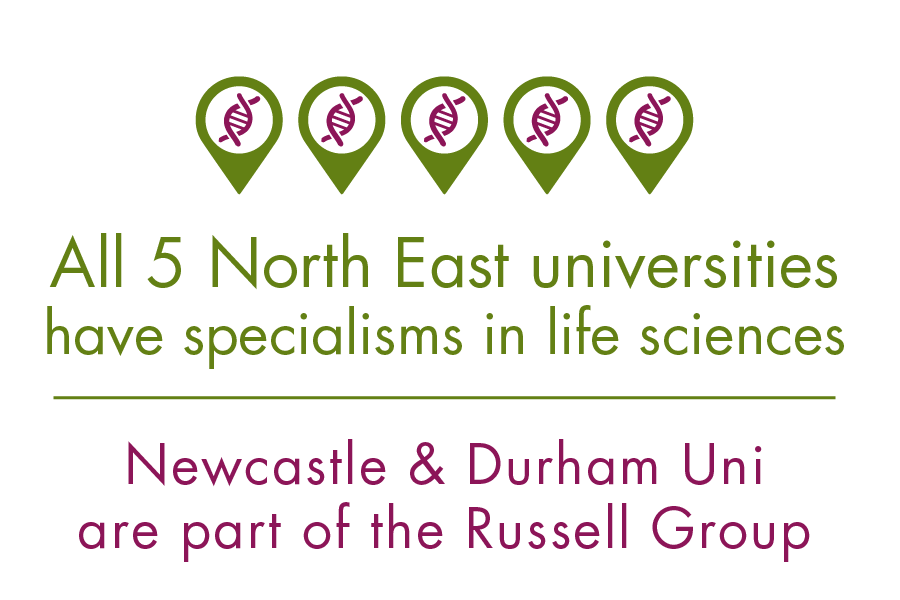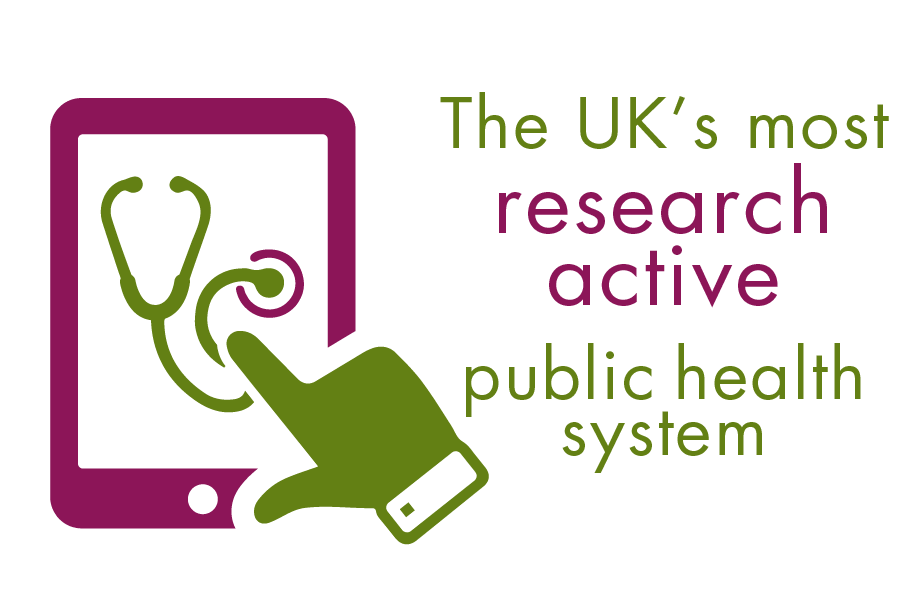Life sciences companies moving to the North East can access a wealth of talent from our existing workforce and university cohorts.
There are nearly 9,500 people employed in the life sciences sector and the region’s wide skills base ensures investors can recruit and maintain the most highly skilled staff. And, we have a strong pool of talent coming from the region’s five universities, with 54,000 students studying STEM (science, technology, engineering and mathematics) related subjects.
The North East’s five universities offer over 125 undergraduate and postgraduate courses related to the life sciences sector.
Our universities have strong broad expertise in many of the disciplines that underpin life sciences, including robotics, data, manufacturing, artificial intelligence and immersive technology. We also have the supporting facilities (in universities and specialist centres) to help investors widen their applications, processes and market opportunities.


University Specialisms
Our five universities each have complementary specialisms, providing a holistic academic and research network for businesses and investors. Newcastle University and Durham University are also part of the prestigious Russell Group, a network of research universities across the UK.
Durham University is home to the Durham Centre for Bioimaging Technology (DCBT), a one-stop-shop for bioimaging research that brings together expertise across biology, chemistry, physics, mathematics and computing science disciples. It applies techniques such as instrumentation, chemical probes and visualisation to real biological challenges. The centre is working towards becoming an international centre of excellence. The university has particular expertise in public health data analytics and has a new Centre for Health Data.
Newcastle University ranks in the world’s top 100 for life sciences research with academic centres of excellence in age-related diseases, personalised medicine and digital healthcare. The university has several institutes and centres of excellence including:
- The Northern Institute for Cancer Research (NICR)
- Campus for Ageing and Vitality
- NIHR Newcastle Biomedical Research Centre
- Newcastle Clinical Research Facility (CRF)
- Institute of Genetic Medicine (IGM)
- Biosciences Institute
- Translational and Clinical Research Institute
- Population Health Sciences Institute
The university is in the top 50 for biomedical studies and its core data science research in computing was judged predominantly world-leading in the last UK Government Research Evaluation (REF). It also has specialisms in: Digital imaging, Diagnostics and In-vitro diagnostics.
Sub-sector strengths
Our regional expertise is particularly strong in the following life sciences sub-sectors:
Clinical trials
We have a strong record of patient participation in clinical trials, providing life sciences companies with a large and established base of study participants. The National Innovation Centre for Ageing (NICA), based in Newcastle, runs the ‘voice’ network featuring thousands of global citizens with whom concepts and products can be developed and tested.
Newcastle upon Tyne Hospitals NHS Foundation Trust is consistently in the clinical research and clinical trials top ranks of the National Institute for Health Research (NIHR) league tables for numbers of recruiting studies, numbers of open commercial portfolio studies, and percentage of commercial studies recruiting patients to time and target.
Precision medicine
The North East offers investors in precision medicine access to unique networks and expertise. The Northern Institute for Cancer Research (NICR) is a multi-disciplinary research institute which acts as a national centre of excellence for clinical trials and development of biomarkers for cancer drug discovery focused on both adult and childhood cancer. As part of the NIHR network of experimental cancer medicine centres, it helps to ensure that the UK remains at the forefront of international development of cancer therapies and has been instrumental in the development of two ground-breaking cancer drugs now licensed for use.
Newcastle University’s Institute of Genetics, based at the International Centre for Life, is acknowledged for its world-leading research into rare diseases and cancer. This is an area of research with increasing worldwide recognition of the need for a specialised focus. The Newcastle facility combines research with practical diagnosis, treatment and care.
Ageing and health
Our region is a specialist in ageing and health, thus one of the reasons for the £40million National Innovation Centre for Ageing being based in Newcastle. The centre brings together world-leading experts in innovation, the public and the NHS to improve quality of life as the population ages. Newcastle University is a leader in the scientific response to global demographic change and will create a Centre of Research Excellence (NUCoREs) in Ageing, Rare Diseases and Biomedical Engineering to strengthen its offer.
Newcastle upon Tyne Hospitals NHS Foundation Trust has collaborated with the NIHR on the Biomedical Research Centre in ageing and long-term conditions and the Biomedical Research Unit in Lewy Body Dementia.

